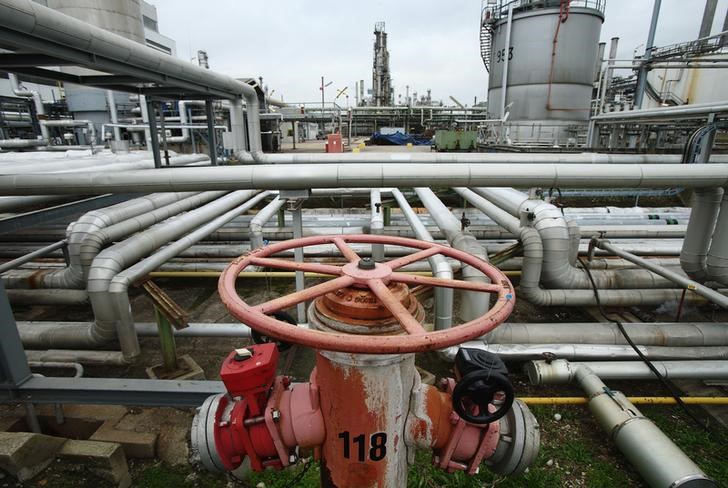SINGAPORE (Reuters) – Oil price were little changed on Tuesday, trading near a three-month high reached on Monday, on signs of tightening global supply as producers implement output cuts and strong demand in the United States, the world’s biggest fuel consumer.
futures for October were at $85.30 a barrel at 0135 GMT, down 13 cents or 0.15% lower from its close. Front-month Brent settled at its highest since April 13 on Monday.
U.S. West Texas Intermediate crude was at $81.69 a barrel, down 0.1% or 11 cents from the previous session’s settlement, which was its highest since April 14.
“Oil prices are on track to hit 2023 price highs in our view. The Organization of Petroleum Exporting Countries (OPEC) meeting this Friday is a potential catalyst for the outlook where we expect Saudi Arabia’s voluntary supply cuts to be extended another month,” said National Australia Bank (OTC:) analysts in a Tuesday note.
Analysts expect Saudi Arabia to extend its voluntary oil output cut of 1 million barrels per day (bpd) for another month to include September to provide additional support for the market during a virtual meeting with other major producers set for Friday.
In June, the Organization of the Petroleum Exporting Countries (OPEC) and its allies including Russia, known as OPEC+ agreed on a broad deal to limit oil supply into 2024, and Saudi Arabia pledged an additional voluntary cut for July. On July 3, Saudi Arabia said the cut would include August, adding that it could be extended further.
The Saudi Arabian cuts fell slightly short of the target, with output down by 860,000 bpd in July, while total production from OPEC was 840,000 bpd lower, a Reuters survey showed on Monday.
The data showing the supply cuts coincided with U.S. figures released on Monday showing fuel demand rose to 20.78 million bpd in May, the highest since August 2019. The data from the Energy Information Administration also showed gasoline demand, expressed as product supplied to the market, surged to 9.11 million bpd, the highest since June 2022.
oil and gasoline stockpiles were expected to have declined last week, according to a Reuters poll which estimated on average that crude inventories fell by about 900,000 barrels in the week to July 28.
Read the full article here
